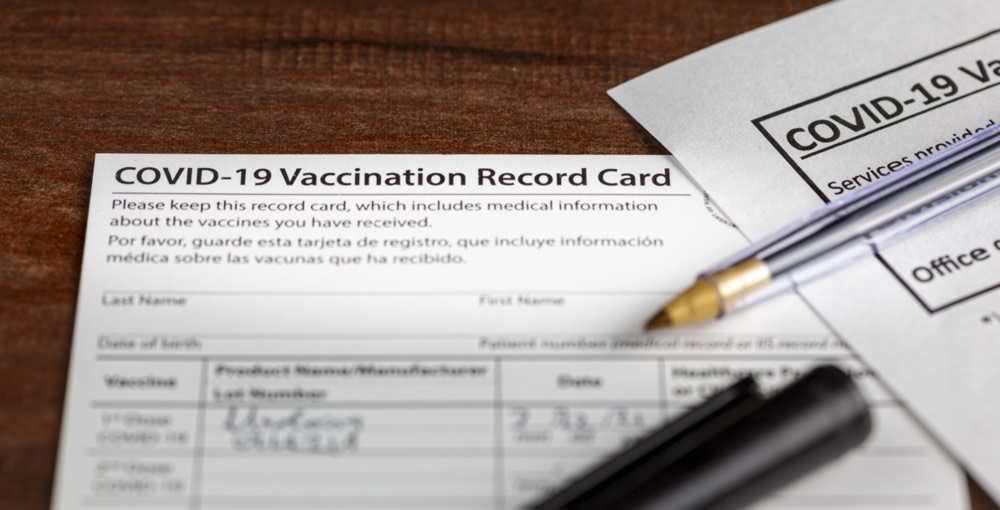A Physician’s Point of View: Here’s what we know (and don’t know) about the COVID-19 Vaccine

A recent CDC report showcases that from January 1, 2021 through April 30, 2021, there were roughly 10,000 break through cases with people who were vaccinated that tested positive for COVID-19. In general, the breakthrough cases involved mild symptoms (good news), 27 percent were asymptomatic, but 995 were hospitalized (not all for COVID-19), and 2 percent died (not so good news).
As of June 8, 140 million people in the U.S. have been fully vaccinated, which is 42.6 percent of the population. With so few break through cases, this proves to be a great vaccine, and way better than any flu vaccine has ever been. Many of the breakthrough cases are from COVID-19 variant strains, mostly the UK variant.
In our vaccinated patients that test positive with the PCR test, Texas MedClinic is required to report the results to the city and state.
I wonder if some of these breakthroughs cases are due to a weakened immune system, or if it is in the same group of folks who were having the more severe cases because their immune systems do not respond well to viruses in general?
Does Texas MedClinic offer the Pfizer BioNTech COVID-19 vaccine for adults and children ages 12 and older?
Texas MedClinic is now offering the Pfizer COVID-19 vaccine for adults and children ages 12 and older at all 19 clinics across the region. Patients who are already in clinic for a different medical reason may also receive the vaccine during their visit.
Can you get a COVID-19 test and vaccine on the same day?
Several scenarios were presented to me about patients coming in for COVID-19 testing and also wanting a vaccine the same day. If someone was exposed, asymptomatic, and tested negative, we could offer the vaccine, since they are not ill. But consider the following for these folks who are now in quarantine. What if they have a fever the next day? Is it from the vaccine or from contracting the actual virus? This would be confusing, and I would use caution and consider not giving the vaccine until they have recovered. I would recommend using the same caution and not giving a vaccine for a patient who presents with symptoms, and the COVID-19 test is negative, and there was no exposure.
Since the number of tests at our clinics have dropped significantly since the early part of 2021 when the virus had its highest positivity rates in our communities, patients who seek testing are now able to speak with the physician/provider first.
How does the COVID-19 vaccine affect younger adults and adolescents?
There have been reports of younger folks getting myocarditis, or heart muscle pain and inflammation, after the vaccine. This is under investigation and may not be caused by the vaccine. But if someone calls with chest pain and shortness of breath after receiving the vaccine, they should be referred to the ER to be evaluated.
Can you still get a COVID-19 vaccine after receiving monoclonal antibodies?
A patient who is female, age 55 with a BMI of 40, with no other medical problems received a Pfizer COVID-19 vaccine on 4/17/2021.
She started having COVID-19 symptoms 2 days later (4/19/2021). She tested positive for COVID-19 by PCR the next day (4/20/2021). She meets criteria for infusion of monoclonal antibodies and wants to get this treatment. She is now in day 6 of symptoms, still has fever, and other mild symptoms. Is she able to get the monoclonal antibody infusion, even though she recently received the vaccine?
She can get the monoclonal antibodies, but she would need to wait 90 days after the treatment to receive her 2nd COVID vaccine.
If we need to guide patients in choosing the monoclonal infusion OR the second COVID vaccine, I recommend the monoclonal antibody infusion, since it can significantly reduce rates of hospitalization. Recovering from COVID-19 should boost the immune system much like a second vaccine. But the reason to wait to have the second vaccine 90 days after the infusion is based on the lack of good data to say there is no interaction between the vaccine and the monoclonal antibodies.
If someone has received the first of two vaccines and needs monoclonal antibodies, that person should still have the second vaccine. And, as noted above, the second dose should be delayed until 90 days after the monoclonal antibody infusion. Per CDC guidelines, patients should not restart the vaccine series.
What are the contraindications or precautions for COVID-19 vaccine?
I have learned there are contraindications, precautions and “no problem” categories for the COVID-19 vaccine. The contraindications—those who absolutely cannot have the vaccine– are very few. Those patients who should not get the vaccine are those who have had a previous serious reaction to the COVID-19 vaccine or any of its components; symptoms include wheezing, swelling of the face and throat, hives, hospitalization, all within 4 hours of the receiving the mRNA vaccine or its components.
The second level of caution is when a patient has a history of anaphylaxis that includes hives, throat swelling, wheezing, hospitalization from exposure to any food or medicine. For this second level, the patient may take the vaccine, but we have them wait 30 minutes after receiving the vaccine for observation.
Can you get a COVID-19 antibody test to see if the vaccine has worked?
A patient asked about using an antibody test to see if the vaccine “worked” for them. We cannot use a commercial test to confirm vaccine response the way we check Hepatitis B antibodies. There are antibody tests used in research to follow persons who are vaccinated, but so far there is not one we can recommend to patients for the purpose of seeing if they are “protected.”
What are the unknowns of the COVID-19 vaccine?
Does the vaccine work as well if a patient is immunosuppressed?
Does it work as well if you have the second dose after 6 weeks?
These are two questions I receive frequently, for which there is no data available currently to provide recommendations to patients. COVID-19 is a novel virus for which there are many ongoing studies.
In general, we would say it is worth some risk of unknowns because of the benefits of protection from COVID-19.





